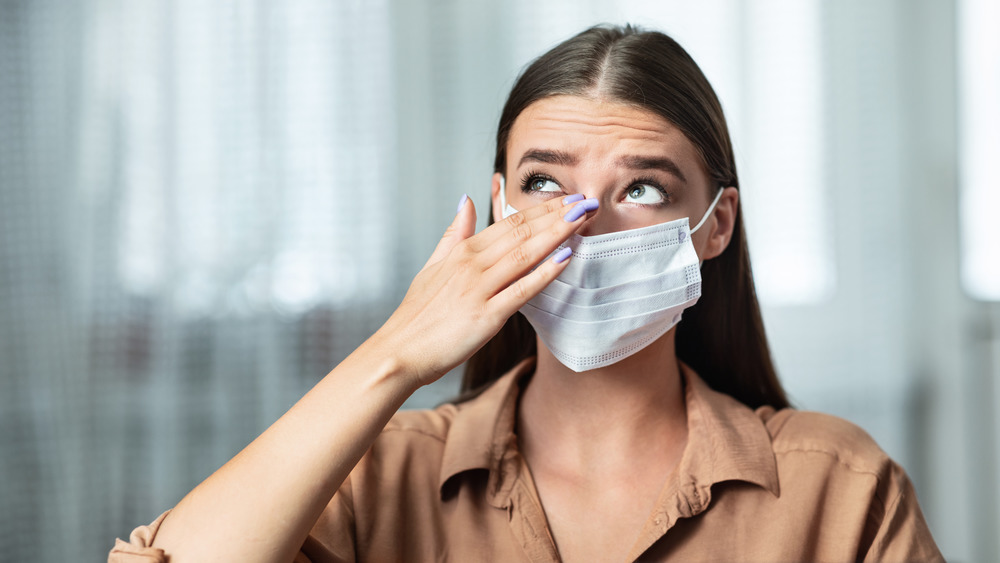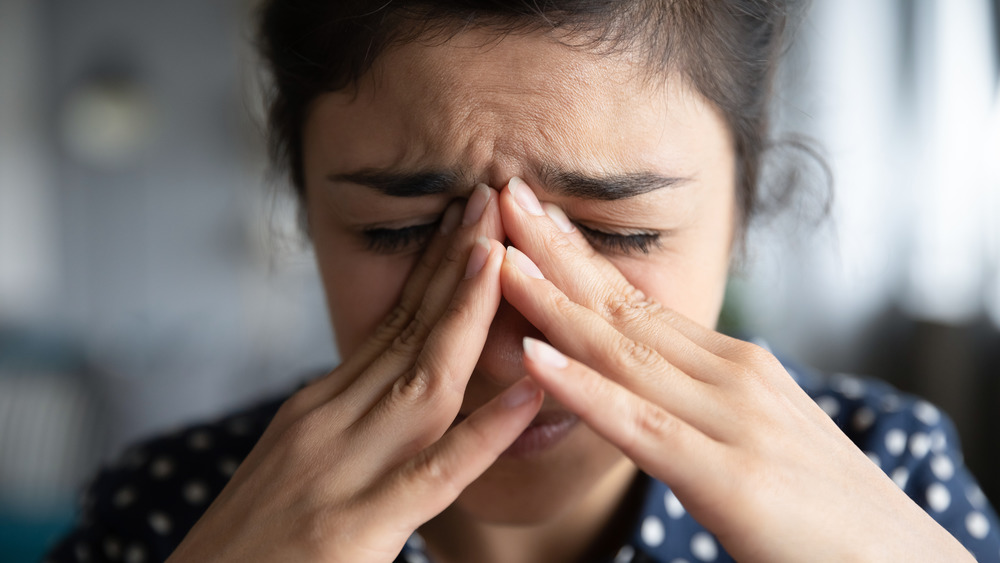Touching Your Face Is Riskier Than You Think. Here's Why
Early on in the pandemic, the Centers for Disease Control released guidance for things to do to protect against coronavirus. Included on the list was the suggestion to avoid touching your face with unwashed hands.
That's because the face, specifically the eyes, nose, and mouth, can be conduits for diseases, including COVID-19, to enter the body. And you probably touch your face a lot more than you realize.
Health Digest spoke with Dr. Seema Sarin, Director of Lifestyle Medicine at EHE Health, about what happens when you touch your face. She said it all comes down to the hands. "Hands can play a major role in transmitting germs," she explained. "Even with frequent handwashing, hands quickly come in contact with contaminated surfaces in your surrounding area. When your hands are contaminated and you touch your eyes, nose, or mouth, it can introduce that virus or bacteria into the mucous membranes that are the pathway into your respiratory system and lungs."
Once it invades, a virus or bacteria spreads throughout the body and can be passed to others through respiratory droplets.
Here's how often you really touch your face
One 2015 study revealed that people touch their face an average of 20 times each hour, according to Sarin — that amounts to around 300 times a day. Some people are concerned that face masks increase that number even more. The truth, however, is the opposite. "Recent studies show that healthcare professionals who wear masks actually touch their face much less (5.4 times per hour) than those without masks (20 per hour)," Sarin said.
The key, of course, is to get a mask that fits well. And if you do need to take it off and put it on, wash or sanitize your hands regularly.
Some surfaces are much more likely to be contaminated, according to Sarin. Areas to watch out for include: cellphones, remote controls, computer keyboards, office shared spaces (such as the fridge, coffeemaker, and vending machine), purse, keys, pets/pet toys, ATMs, public transportation, gas pumps, grocery carts, menus, public restrooms, raw meat, and door handles. To avoid contaminants in these areas, Sarin advises, "Stay safe by washing your hands frequently with warm water and soap for at least 20 seconds, and using alcohol-based hand sanitizer when you can't wash."


